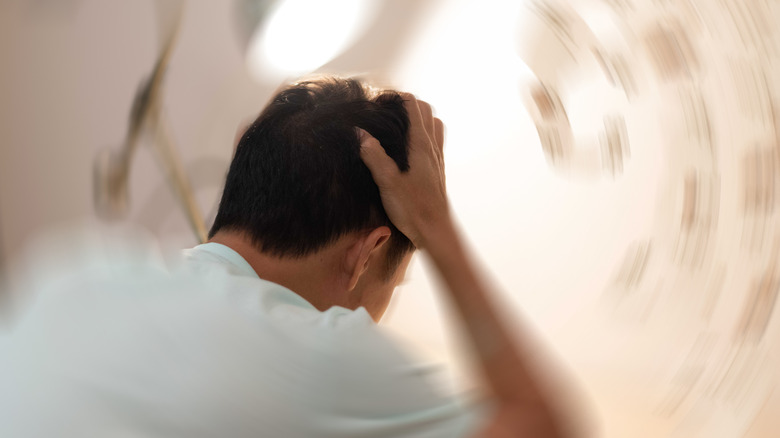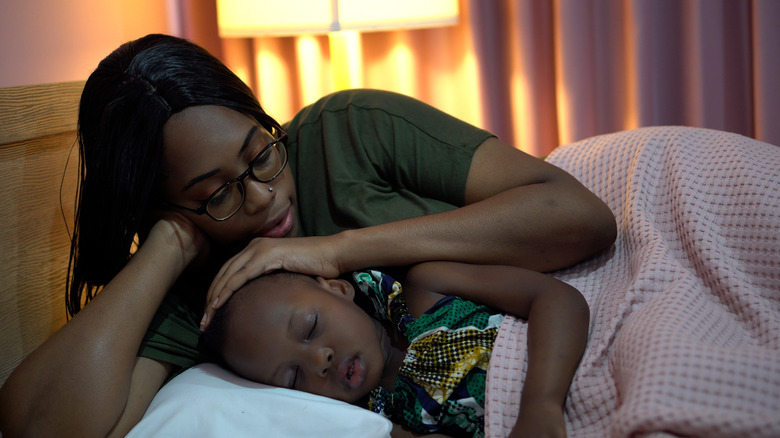What Happens When You Sleep After A Head Injury?
In early 2022, actor and comedian Bob Saget died in an Orlando hotel room, as The Orlando Sentinel reported. Initially, the cause of death was unclear. A few weeks later, however, his family reported that the 65-year-old died of head trauma. "[The authorities] have concluded that he accidentally hit the back of his head on something, thought nothing of it, and went to sleep," a spokesperson for the family said, via Buzzfeed News. Saget was found dead the next day.
Head injuries are, in fact, no trifling matter, and even a seemingly-minor knock on the head can be fatal, according to the Cleveland Clinic. For this reason, and others, it's important to monitor a patient for 24 to 48 hours after a head injury and to be on the lookout for worsening symptoms. You may have heard the advice that you shouldn't go to sleep for some unspecified period of time after suffering a head injury, lest you suffer Bob Saget's fate. Maybe you remember your own mother frantically trying to keep you awake back in the day after one of your own childhood head injuries. But is keeping a concussion victim awake the right course of action?
You can safely go to sleep after a head injury, usually
The advice to stay awake after a concussion isn't what medical professionals advise — the brain needs rest after an injury — but in rare cases, there can be complications that could be missed if a person is asleep and not being monitored. Winchester Hospital says a "lucid interval" is one of those unlikely, but possible, scenarios. It refers to a minor brain bleed while a person is still awake and conscious, but then as they sleep the "bleeding eventually worsens and brain structures become compressed." If this arises it's an emergency situation requiring surgery.
However, as Healthline and Winchester Hospital note, sleep itself after a head injury will not cause death or worsen whatever injuries the victim suffered when they got hurt. If a person is capable of carrying on a conversation, can walk without difficulty, and/or doesn't have dilated pupils, it's fine to let them sleep. UAMS Health explains, a person who sustains a concussion should actually be encouraged to rest, and even go to sleep if they want to.
All that said, to be on the safe side, a head injury shouldn't be ignored. The University of Arkansas for Medical Sciences' Dr. Alice Alexander encourages monitoring post-concussion patients for signs of more severe trauma, such as vomiting. And in the case where the injured person went to sleep after their incident, Alexander suggests waking them up every few hours just to make sure it's possible to arouse them.

